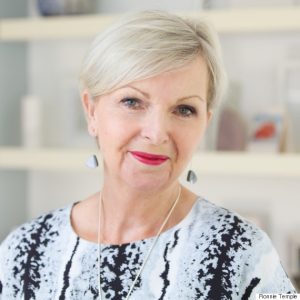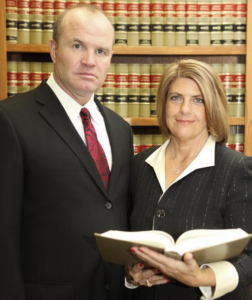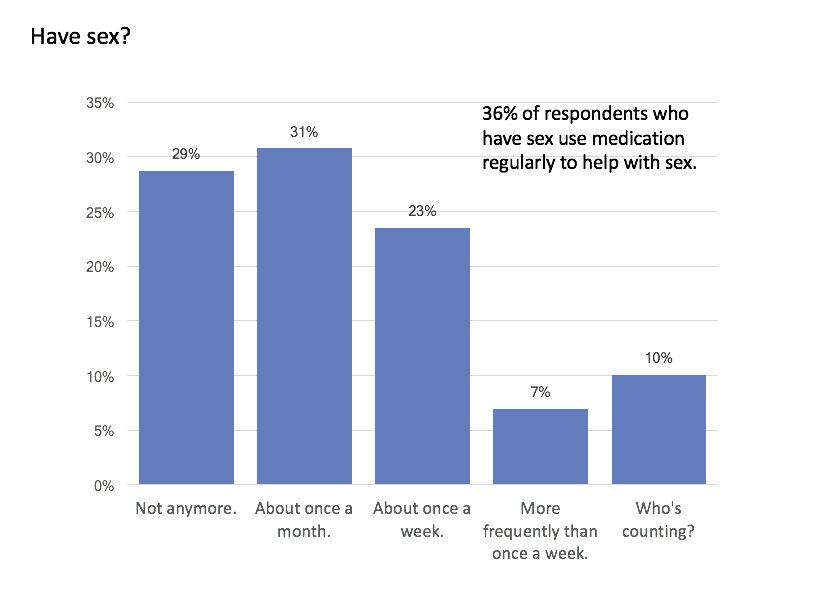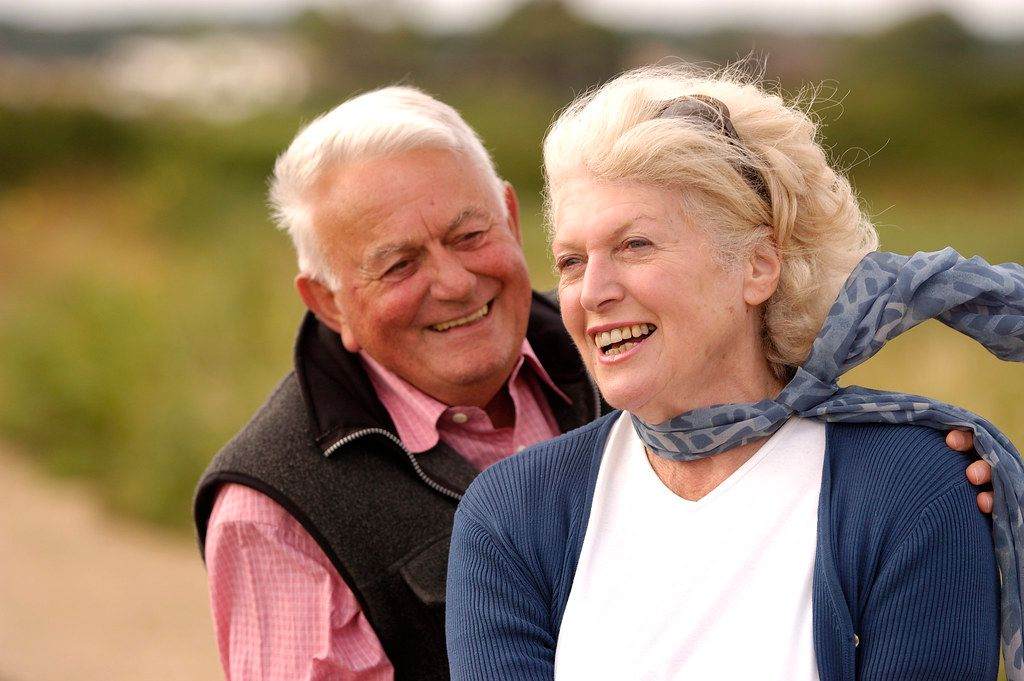Dating After 70
My wife of many years, whom I will call Alice in this piece, died when I was 69.
At the age of 70, I began dating for the first time since I was at Yale. Dating at 70 is different from dating when you’re young, and a number of friends who have long been married are curious about what this experience is like. A couple of them even sat next to me and looked on in fascination as I fooled around on Match.com. I thought some of my classmates might share that curiosity, so I’ve written this account of what it was like.
This is not a how-to, although it does contain some how-not-to. It’s just a short history of my dating life over the last several years. Because I live in flyover country, much of it will differ from anything the majority of my classmates—those who live on the coasts and in large urban areas—have experienced or might experience.
I’ve used pseudonyms for the women who appear in this account, naming the significant ones alphabetically in the hope that that will make it easier for the reader to keep track of them. The women less important to the story get names starting with letters near the end of the alphabet.
Part 1: Barbara
 The first woman I went out with after Alice’s death was Barbara, a classmate of mine in my last two years of high school. She came to Alice’s funeral, and that was the first time I’d seen her in more than 50 years. I didn’t recognize her until she told me who she was. She was a lot prettier than I remembered. A lot. And as she walked away, I noticed that she still had a nice shape, unlike most of our contemporaries, including me.
The first woman I went out with after Alice’s death was Barbara, a classmate of mine in my last two years of high school. She came to Alice’s funeral, and that was the first time I’d seen her in more than 50 years. I didn’t recognize her until she told me who she was. She was a lot prettier than I remembered. A lot. And as she walked away, I noticed that she still had a nice shape, unlike most of our contemporaries, including me.
During the few seconds we had spoken, she told me that her husband had died from cancer too. Was this just a way of saying, “I know what you have been through”? Or was she also trying to tell me that she was available when I was ready? My daughter, who was with me during that exchange, thought it was the latter.
About six months after the funeral I called Barbara and asked her to have dinner with me. I was able to tell myself that this dinner wouldn’t be “too soon” because it wasn’t a real date, just a chance to talk about Alice with someone who knew her even before I did. But if I’m honest, I have to admit that something else was going on. As I made the hour-long drive to her house, I kept thinking about what Barbara had said to me and hoping that it was at least partly invitational.
At dinner we talked mainly about Alice. Afterwards, we went back to her house for dessert, and she talked some about her husband. He was Catholic, she was Baptist, and they had felt a need to find a compromise church. I think most Baptist-Catholic couples end up Episcopalians, but Barbara and her husband settled on the Church of Our Savior and the Coming Apocalypse. Okay, that wasn’t its real name. I don’t remember the real name, but it was one of those names that shout, “We’re not affiliated with any denomination you’ve ever heard of.”
When she began telling me about the importance of that church to her, I steered our conversation in another direction, and after an hour or so I left for home. The date was chaste. I didn’t even kiss her goodnight, so I could tell myself that I didn’t have a real date “too soon.” (Someone once warned me that the people who tell the widower that he “needs to get out there” are often the same people who, when he does get out there, will say to each other “So soon?”)
“For the first time in decades I had to ask myself whether I could be comfortable in a relationship with a theist.”
But over the next few days I thought a lot about Barbara—how pretty she was, how nice her figure was. I had to admit that I was attracted to her and that in retrospect our dinner was a real date. But I worried about how important Barbara’s church was to her. Alice and I had been simpatico about religion—we didn’t care for it, and we raised our children without it. For the first time in decades I had to ask myself whether I could be comfortable in a relationship with a theist.
I still hadn’t resolved that issue when I arranged a second dinner with Barbara. Everything went well until we were back at her house and she began telling me still more about her church. I felt that I would be a fraud if I didn’t say something now, so I interrupted her to tell her that she needed to know that I was an atheist.
 Her face changed instantly, registering incomprehension. Did she not know what an atheist was? Or was it just incomprehensible to her that an atheist could be sitting there in her own house? In my confusion, I thought it might be the former, so I went on, “I think it’s highly unlikely that gods exist.” She seemed no less bemused, so I stupidly added, “That doesn’t mean I’m a bad person. I have morals just as a religious person does.” Now I seemed to be treating her like a child. Maybe she was childlike when it came to this subject, but it was stupid—even rude—of me to speak to her as if she were a child.
Her face changed instantly, registering incomprehension. Did she not know what an atheist was? Or was it just incomprehensible to her that an atheist could be sitting there in her own house? In my confusion, I thought it might be the former, so I went on, “I think it’s highly unlikely that gods exist.” She seemed no less bemused, so I stupidly added, “That doesn’t mean I’m a bad person. I have morals just as a religious person does.” Now I seemed to be treating her like a child. Maybe she was childlike when it came to this subject, but it was stupid—even rude—of me to speak to her as if she were a child.
We managed to change the subject, and after a while I got up to leave. At the door we embraced and kissed for a bit, leading me to think that she might be able to get over our different views on how the universe works.
But I realized that I wouldn’t be able to get over those differences, at least if a relationship was to be permanent. But a temporary carnal relationship? That seemed like a good idea to me, but how would she feel about that?
I got my answer a couple of days later when I called Barbara. No answer. I left a message. She didn’t call back. This happened several days in a row.
And that was the end of Barbara.
Part 2: Christine
 A number of friends from out of town had come to Alice’s funeral, and on the night of the funeral we all went out to dinner together. I had more than my share to drink that night, and as Wendy, one of those friends, was guiding me into her rental car, she asked, “Is it okay if I tell Christine that Alice died?” I said, “Of course! Why not?” In my state that night, I didn’t think anything of Wendy’s question except that the is-it-okay phrasing seemed a little odd.
A number of friends from out of town had come to Alice’s funeral, and on the night of the funeral we all went out to dinner together. I had more than my share to drink that night, and as Wendy, one of those friends, was guiding me into her rental car, she asked, “Is it okay if I tell Christine that Alice died?” I said, “Of course! Why not?” In my state that night, I didn’t think anything of Wendy’s question except that the is-it-okay phrasing seemed a little odd.
Christine had been one of my partners when I was practicing law. Though we were in different cities, she and I worked together on a couple of matters and got to know each other reasonably well. We were both married then, and even if we hadn’t been, I don’t think I would have been sexually attracted to Christine. She was pretty but she had a sort of priggish manner that wouldn’t have appealed to me if I had thought to evaluate her in romantic terms. She spoke stiffly and, in what I suppose was an attempt to disguise her Carolina roots, never dropped a g in her ‑ing’s (and all speakers of English drop at least some of those g’s), and she overdiphthongized her long i’s. The effect was to make her sound sort of like a sophisticated robot.
 Christine was one of the few colleagues I had kept up with in retirement. We emailed each other perhaps two or three times a year. When her husband told her out of the blue that he wanted a divorce, she cried on my shoulder, at least to the extent my shoulder was available via email.
Christine was one of the few colleagues I had kept up with in retirement. We emailed each other perhaps two or three times a year. When her husband told her out of the blue that he wanted a divorce, she cried on my shoulder, at least to the extent my shoulder was available via email.
Christine never met Alice, so it hadn’t occurred to me to tell Christine right away of Alice’s death. But when I woke up the day after the funeral, I realized that the strange way Wendy had posed her is-it-okay question likely indicated that Christine had expressed an interest in me to Wendy in conversations since Christine’s divorce.
A few days after the funeral, Christine called me, and as the months passed we spoke more and more. Christine was really smart, and I found her intelligence so appealing that I began to think it might be possible to overlook her stiff manner and off-putting speech.
A few months after Barbara ghosted me, I asked Christine to come visit me, and a few days later she was here. The visit was pretty chaste. A lot of smooching, and some touching, but we slept in separate rooms. Seventy is not the same as twenty; getting laid is no longer the be-all and end-all of every date.
A few days after she went home, Christine called and suggested we rent a cottage at a resort halfway between us and meet there. How did that sound? I really liked, and still like, Christine; but, although she has a sense of humor, she isn’t really “fun.” It seemed ungentlemanly to turn her down, so despite my ambiguous feelings about Christine as a romantic partner, I said it sounded great. She made the arrangements.
STDs? Really?
A couple of weeks before we were to meet, she told me that I should know that her husband had genital herpes, a legacy of his Dartmouth days. “But you really don’t need to worry. We were always careful. We never had sex when he was having an outbreak, and I’ve never had any symptoms. And I haven’t been with anyone since my divorce. But I thought I should tell you this in case you want to bring condoms.”
Now as it happened, ever since I began to think about dating I had been reading up on STDs. As far as I had been able to tell, these things had become rampant since my undergraduate days. I never gave much thought to STDs before marriage. Wasn’t anything you could catch curable with a dose of penicillin? That was what I had thought back in those days anyway. I hadn’t had to think about these things during my decades of marriage, so I was pretty ignorant until I began googling.
As a result of my googling I knew enough to say to Christine, “I don’t think there is any way to be 100 percent safe from herpes, no matter how ‘careful’ you are. And, as I understand it, most people with herpes are asymptomatic, so your lack of symptoms isn’t completely reassuring, since those who are asymptomatic can still transmit the disease. And while condoms are safer than nothing, they’re not a guaranty. Would you mind getting tested?”
She agreed and called me a few days later to say that yes, she did have herpes. I felt pretty shitty. She had been happy in her ignorance, and now, thanks to me, she was burdened with an unpleasant truth. In the circumstances, I thought the only thing I could do was get tested myself. Maybe I too had asymptomatic herpes, although it seemed extremely unlikely. I would have had to have contracted it decades ago, and since Alice would no doubt have contracted it from me, we both would have had to be asymptomatic. But if I did have herpes, there was no reason I shouldn’t sleep with someone who had it too.
I was tested and the results were negative, so I had another awkward call with Christine to tell her the results and to beg off the tryst she had planned. She said, “Okay, but you’re missing the best sex you will ever have.” That remark pretty much demolished my picture of Christine as a prude, but it didn’t tempt me. In fact, herpes or no herpes I was a bit relieved that sex with her was off the table.
I continued to talk to Christine several times a week. I was just plain lonely, and, as a female friend of long standing, she was easy to open up to.
Meanwhile, in addition to my calls with Christine, I tried to assuage my loneliness by heading to a bar some evenings after eating my microwaved frozen dinner. The bar that I began to frequent is within walking distance of my house, and since it doesn’t have loud music and has only two smallish TV screens, its crowd consists almost exclusively of people over the age of 30—some, like me, well over 30. I went there for the company, usually of people I already knew who might happen to be there, but the thought that I might meet a single woman there was never far from my mind.
That never happened, which led me to . . .
Part 3: Match.com
A lot of friends had suggested I try a dating site. I was reluctant at first but, without any apparent leads, I decided to join one. From the little research I did, it appeared that the sites that pretend to be “elite” are not. And while a 50+ site seemed appropriate at first blush, at least to someone who couldn’t imagine dating someone under 50, I thought that signing up for such a site signaled “I’m an old man.” While I suppose that I am an old man, I don’t feel like one. And more importantly, I wasn’t looking for someone who, regardless of age, considered herself an old woman. In the end I chose Match.com because it has the most subscribers.
If you’re as ignorant as I was about how these dating sites work, I need to fill you in a bit.
 When you join, you give yourself a username. Women who see your profile will see only that name, not your real name. You upload a few pictures and check some boxes to give a little information about yourself. As I was to learn, the information deemed most important by women seem to be age, height, income bracket, marital status (divorced, widowed, never married), political leanings, and religion. Subscribers also indicate their preferences, if any, in the same categories for a match, often with a range (age, height) or with multiple preferences within a particular category (for example, widow and divorcée are fine, never married is not).
When you join, you give yourself a username. Women who see your profile will see only that name, not your real name. You upload a few pictures and check some boxes to give a little information about yourself. As I was to learn, the information deemed most important by women seem to be age, height, income bracket, marital status (divorced, widowed, never married), political leanings, and religion. Subscribers also indicate their preferences, if any, in the same categories for a match, often with a range (age, height) or with multiple preferences within a particular category (for example, widow and divorcée are fine, never married is not).
If you participated in Operation Match in our undergraduate years, most of this will be familiar to you.
You also write an essay about yourself. Since it was soon after the 2016 election, I ended my essay by saying, “I am far from obsessed with politics, but if you’re not appalled by Donald Trump, we are not compatible.” As I reread my essay before posting it, I saw that I had written that after retirement I had moved where I am now “at my wife’s instance.” Hmm, I thought, some women are not going to know the word “instance” in that sense. But I decided to leave it in as a sort of pons asinorum. (Okay, classicist classmates: I know it should be “pons asinarum” in this context.) After the essay went live, two or three thoughtful women let me know that I had mistyped the word “insistence.” Oh well.
After I began seeing women I met on Match, I learned that there’s a general assumption that almost everyone lies about himself or herself. But I had no incentive to lie. I wasn’t looking to get laid—well, I wasn’t looking just to get laid—I wanted a real relationship. So not only did I nix Trumpists, I checked the atheist box, despite my daughter’s suggestion that “agnostic” would sound more polite. But “agnostic” is an unnecessary neologism. Very few are certain about such things (I’m not), and even the Archbishop of Canterbury has confessed his doubts about the existence of God. I prefer a term that puts some distance between the Archbishop’s beliefs and my own.
But apart from my lack of religious belief and, in the view of women on the right, my political leanings, I touched all the bases for women who were willing to date a man in his 70s. Widowed, rather than divorced; Yale; tall; income in the highest bracket recognized by Match ($150,000 plus). In fact, one of the women I was to meet on Match told me she thought my profile screamed fake until she got to the bottom and saw that I had checked “atheist.” No fraudster would check that box. (A tip for any of you hoping to get into the business of defrauding women: call yourself an atheist.)
Once you’ve finished your profile and forked over the membership fees, you can see everyone who’s on Match, whether they meet your criteria or not. In addition, Match sends you a daily “top twenty” who, in theory, match your criteria as closely as possible; but I’m an oddball in this region, so there was no one who fit my criteria very closely. A surprising number of women even had essays that included—often began with—“The most important relationship in my life is the one I have with Jesus Christ” or words to that effect. The pickings looked slim.
And there was no getting around the fact that the women in my age cohort looked old. When you’re in a long marriage, your wife never ages. She looks today the way she looked yesterday, and she looked yesterday the way she looked the day before, and so on. But when you are seeing for the first time a lot of women 60 and older, most of them just look old. (And, yes, I’m aware that I look old to them too.)
I was disappointed with what Match was showing me, but I’d prepaid for six months to take advantage of a deal, so I wasn’t going to abandon it until the six months were up—or until I was lucky enough to meet a companionable woman.
 With no prospects appearing at the bar where I had become a semi-regular, and only dreary prospects on Match, I seemed to have almost no dating options. At about this time our 50th reunion class survey went live. One of the questions was “How often do you have sex?” The possible answers did not include the one that fit my situation: “As often as I can, which at the moment is never.” I chose a frequency that was false as a matter of fact but true as a matter of aspiration.
With no prospects appearing at the bar where I had become a semi-regular, and only dreary prospects on Match, I seemed to have almost no dating options. At about this time our 50th reunion class survey went live. One of the questions was “How often do you have sex?” The possible answers did not include the one that fit my situation: “As often as I can, which at the moment is never.” I chose a frequency that was false as a matter of fact but true as a matter of aspiration.
Within a day or two of joining Match, I learned something important: women our age who are hoping to find someone on Match are pretty damned determined to find that someone.
This isn’t really surprising when you consider the demographics. As I was writing this piece, I did a little census research. It turns out that in 2019 there were 418,483 single 70-year-old males and 720,991 single 70-year-old females. So those of us who have managed to elude the Grim Reaper’s scythe have become rarae aves. (Happy now, classicist classmates?) For the first time in my life, I knew what it was to be the hunted rather than the hunter.
My Match mailbox was filling up with email. (Match has its own email system, so no one knows your real email address unless you tell them.) Some of the women who emailed me were too far away to consider seriously, but a couple of those long-distance prospects seemed attractive and smart enough to pique my interest. In both cases, the potential match and I swapped phone numbers and talked for several nights, but in the end I just couldn’t get motivated to fly hundreds of miles for a first date.
A couple of women nearer to me caught my eye; they were the only two I initiated contact with rather than vice versa. One was Frances. I didn’t contact her right away, but she will show up later in this account. The other was . . .
Part 4: Donna
 Donna was a widowed airline attendant and in her essay she said, “When I lost my husband, I not only lost the love of my life, I lost my bridge partner too.” A widow without a bridge partner! And she looked very attractive in her pictures. But she was 25 years younger than I. Nevertheless, I emailed her, via Match, and she responded enthusiastically, giving me her telephone number and asking me to call her the following afternoon.
Donna was a widowed airline attendant and in her essay she said, “When I lost my husband, I not only lost the love of my life, I lost my bridge partner too.” A widow without a bridge partner! And she looked very attractive in her pictures. But she was 25 years younger than I. Nevertheless, I emailed her, via Match, and she responded enthusiastically, giving me her telephone number and asking me to call her the following afternoon.
I waited until the following evening to call Donna. She was obviously drunk. In fact, the reason I waited until evening was to get a possible indication of alcohol trouble. I realize now that I should have just told her that I could tell that she had had a little too much to drink, that I too occasionally tried to numb my loneliness by drinking alone, and that I would try her again another time. But I didn’t. I kept on the line while she tried ineffectively to feign soberness. I did ask her a few questions about her bridge game, and I could tell from her answers that she was not a serious player. She also told me that she had not gone to college. My interest in her vanished, but, as would happen again, I found myself too polite, incapable of bluntness with a woman who seemed interested in me. She was eager to meet, but I told her, truthfully as it happened, that I was traveling for a few days. But now she had my phone number and was able to pursue me with calls.
Part 5: Emma
In the meantime, I exchanged a few emails with Emma, who had also expressed interest in me on Match. Emma was my age. German by birth, she had married an American soldier stationed near her family and had lived in the U.S. for her last 50 years. She was now a widow. Google Maps told me that going to her house would add only about 20 minutes to the trip I was about to make, so I suggested we meet for lunch.
I met her at her house, which turned out to be her “cottage.” (She also had an apartment in a nearby city and a beach condo.) I had thought that I would be taking her to lunch; most women want their first meeting with a man to be in a public place, for obvious reasons. But she had prepared a meal for us to eat at her cottage. It was far more elaborate than my usual lunch—pork loin, mashed potatoes, a salad, and dessert, plus some other dishes I’ve now forgotten. I asked her why she’d taken such a chance with someone who for all she knew might be a serial killer. It turned out she had researched me to a fare-thee-well and was comfortable with what Alice’s obituary and other things she found on the internet had revealed about me.
Emma’s accent was unusual. She had learned English as a schoolgirl in Germany, but she had lived for decades in Alabama, where she apparently came to believe that her English teacher in Germany didn’t quite understand English vowels. The long i of English has an equivalent in German (“nein”), but her time in Alabama apparently taught Emma that “my” is pronounced “mah.” That’s not quite the way some Southerners pronounce their long i’s, but I suppose there is no counterpart to that vowel sound in German, so she settled on a vowel sound she grew up using, the a of “das.” The effect of this and other speech idiosyncrasies was to make her sound like Angela Merkel trying to do an impression of Fannie Flagg.
Emma and I kissed as I was leaving, and she suggested I might want to break up my trip home by spending a night in her cottage. She’d shown me around her cottage and it had only one bedroom, so I knew she was offering more than just a bed. Things were moving faster than was comfortable for me.
While I was travelling, a sober Donna called me every night, wanting to know when I would return. After a couple of nights of this, I told her what I hoped was a kindly fib: I had been thinking about the 25-year age difference, and I just didn’t think it would work.
Emma had told me that she would be tied up with a memorial service on the following Sunday, so I timed my trip home so as to be driving on that Sunday. I liked Emma. She was attractive and age-appropriate, but I wasn’t ready to sleep with her. She, however, was quite ready. So shortly after I got home Emma invited herself to my house for a few days.
She asked me for no commitment, and I gave none. The commitment I had made to myself was that I was not going to sleep with more than one woman at the same time. I considered myself still on the market, but if I were to sleep with another woman I would end things with Emma. So I considered myself free to call Frances, whose Match profile had appealed to me, and I did call her.
Part 6: Frances
Frances and I met for a drink at the bar. She was 55, not an unbridgeable gap in my view, but she had a 15-year-old son fathered by a deadbeat dad. She had lived in New York City for decades, which I viewed as a plus. She had written a series of young adult novels and one book for younger children. But she eventually found that she could not support herself and her son in New York City, and she reluctantly returned with her son to her parents’ home near me.
Frances and I hit it off immediately. We had the same sense of humor and shared a love of language. True, Frances had some nutty new-agey ideas: flu shots give you flu; refined sugar is as addictive as heroin—that sort of thing. But I knew I wasn’t going to have a long-term relationship with someone with a 15-year-old, and, as long as we could steer conversation away from medicine, nutrition, and a couple of other areas where wackiness reigned, I thought that Frances was someone whose company I would enjoy, someone to relieve the loneliness I felt, even though I was seeing Emma.

I wasn’t ready to stop sleeping with Emma, and I wasn’t ready to start an intimate relationship with the mother of a 15-year-old, so I proposed to Frances that we continue to see each other but keep it platonic. She was fine with that. I began to take her out to dinner about once a week. She told me early on that she couldn’t pay her share at the sort of restaurants we frequented, but I told her that was perfectly okay with me, since the last time I had done any dating it was the guy who paid for everything, and I was too set in my ways to adopt a new paradigm right away.
To jump ahead a little bit, Frances and I saw each other for perhaps a year. We laughed about people we had met via Match, particularly the ones that we had not seen any more of after the first coffee-meeting. We gave each other dating tips, although it’s fairer to say only that she gave me dating tips. She told me I wore “old man shoes,” so I had her go online and pick out a pair for me, which I promptly bought and still wear. She convinced me to start wearing jeans for the first time since college.


But back to Emma. I continued seeing her in her town and in mine, but I never really felt a spark. She asked me to spend a week with her at her beach condo, and I did. In the middle of my first night there, I decided I had to end the relationship. Going to bed with Emma had become a task rather than something fun. This was not her fault but just the result of my inability to summon up any real affection for her. But she had made a point of showing me off to all the people she knew in her beach community, and I thought it would be unnecessarily cruel to leave her suddenly companionless in front of all those friends of hers, so I stayed with her for the entire week as we had planned.
It also seemed cruel to call an end to our affair immediately after spending the week with her, cruel too to say I just couldn’t bring myself to feel anything for her. So after about a week I called and told her that during that week my relationship with Frances, which I had told her about, had moved from platonic to romantic and that I was focused on developing that relationship. Even with this lie, our conversation became more difficult than I had imagined, but the conversation finally ended, as did our relationship.
Part 7: Ginny
About this time a woman from a nearby town got in touch with me via Match. We soon began talking by phone and agreed to meet. She wanted to come to my town rather than have me come to hers, I think because she was only recently divorced from a philandering doctor and didn’t want people she knew to see her out with someone so soon lest they think that she had been the unfaithful one. I invited her for dinner one Sunday night. As I’ve said, meeting for dinner on a first date, rather than just for coffee or a drink, is not the Match norm, but Ginny was comfortable doing that.
She drove to my house and from there we out went to dinner. When we got back to my house, I invited her in. When I opened the door for her she stood just inside in such way that I could not have entered without knocking her down. So I kissed her, and a few minutes later we were in bed. As with Emma, I didn’t feel we knew each other well enough to be having sex already. But here’s the thing: if you’re a guy you feel you have to keep taking the next step. To do otherwise seems insulting. So I was once again having sex with someone I barely knew. That sort of thing is exciting when you’re young, when sex is still an adventure. But once you’ve had sex several hundred times, you need to feel some sort of attachment to your partner to enjoy it as it should be enjoyed.
 I continued to see Ginny for a couple of months. She lived in a McMansion in a neighborhood of McMansions, a house depressingly oversized for a single person. She did have a dog, whose usual method of greeting men, according to Ginny, was to growl and bark at them; but the dog loved me from the moment he saw me. Ginny took it as an indication that I was a good man, but perhaps it meant only that I am insufficiently manly.
I continued to see Ginny for a couple of months. She lived in a McMansion in a neighborhood of McMansions, a house depressingly oversized for a single person. She did have a dog, whose usual method of greeting men, according to Ginny, was to growl and bark at them; but the dog loved me from the moment he saw me. Ginny took it as an indication that I was a good man, but perhaps it meant only that I am insufficiently manly.
Ginny was sixty and attractive, but she felt, and kept saying that she felt, profoundly inferior to me. She told me over and over again that she regretted that she hadn’t gone to a better college. I told her that this didn’t matter and that she had a surprisingly broad familiarity with nineteenth-century novels, broader than that of any other woman I had dated, which was true. I found these repeated expressions of her sense of inferiority unattractive. I told her so early on, but she was unable to stop them.
One strange thing about this relationship was that we never spent the night together. She didn’t want to stay with me because that would leave the dog alone in the house too long. (He was apparently too intractable to be boarded.) She didn’t want me to stay with her because of what the neighbors would think when they saw my car in her driveway, a concern that seemed antediluvian to me. When she came to my town, we’d go out to dinner and then fool around. When I went to see her, we ate at her house. And again I now wonder whether that was because she didn’t want to be seen in her town with a man “too soon” after her divorce.
I knew I wasn’t going to fall in love with Ginny, but I think that not spending nights together made the relationship seem casual and therefore more comfortable than things had been with Emma.
“I hope your visits aren’t just booty calls,” she said.
It could have lasted longer than it did, but on what turned out to be my last visit to her house, Ginny said, “I hope your visits aren’t just booty calls.” (I think this was the first time I’d heard anyone use “booty call” in a serious sentence, but maybe that’s just a function of my age and Ginny’s relative youth.)
I reflexively assured Ginny that this was not a booty call, but the next day I realized that that’s exactly what my visits were. I knew I was never going to fall in love with her, and to suggest that my visits weren’t booty calls implied otherwise. It would be deceitful to continue seeing her after the false assurance I had given her. So I called her that day and explained all this to her. That was the end of that relationship.
Part 8: Helen
So it was back to Match. I scoured the postings of nearby women and hit on an apparently attractive one living nearby. I say “apparently attractive” because, although Yvette’s face was attractive enough, all of her photos were taken in such a way as to conceal her body. Women on Match with nice figures show them off; they often have at least one picture in a bathing suit, as Emma and Ginny had. (And here I must confess that I sucked my stomach in as much as I could when I took my own pictures for Match.). So I thought it likely Yvette was overweight.
Yvette was even younger than Frances, but there didn’t seem to be any other nearby prospects, so I got in touch with her via Match. We agreed to meet at my bar for a drink after she got off from work one evening.
The bar was unusually crowded that evening. With no table available we sat at the bar. As I suspected, Yvette was a little on the heavy side, but not unpalatably so. We exchanged the usual first-meeting chitchat—what she did at work, what I did at non-work, and so on. She had some position, maybe it was in publicity, with the athletic department at a nearby college. About all she could talk about was sports at the college, a common topic in this area but one about which I’m as ignorant as it is possible for a resident to be. I knew within two minutes that I was not going to see her again, but out of politeness I bought her a second drink and we continued to talk.
 Then Helen, a woman I’d known for 50 years, came into the bar and sat on my other side. The crowd noise that night was such that you had to lean in closely to be heard. Helen leaned into my ear and said, “Why don’t you ditch her and come to my house?”
Then Helen, a woman I’d known for 50 years, came into the bar and sat on my other side. The crowd noise that night was such that you had to lean in closely to be heard. Helen leaned into my ear and said, “Why don’t you ditch her and come to my house?”
That offer didn’t come out of the blue. There’s a history. Helen is four years older than I. When she was just out of college, she married a doctor who had just finished his residency. The two of them became friends of my parents, and they would often come over to my parents’ when I was home on vacations. Helen’s husband, Bill, was like a lot of doctors who didn’t go to Yale as undergraduates: his education, except for the education necessary to prepare for a medical career, had stopped with high school. Helen, on the other hand, was broadly educated and a big reader.
I think she realized early on that their marriage was a mismatch, but she stayed married to him until his death 40 years later. But in the meantime she made it obvious that she was attracted to me. It was obvious not only to me, but to my siblings, although I think not to my parents. And it did not stop after I got married. Alice was well aware of Helen’s attraction to me, and as my children grew up they learned about all this from their cousins.
In the week after Alice died, Helen called at least once a day. Fortunately my daughter Zooey (not her real name) was with me most of the time during that week. Whenever caller ID identified Helen as the caller, I would have Zooey answer, not because I wouldn’t talk to Helen—I did talk to her—but because we wanted Helen to know that Zooey was with me so that she would be discreet in what she said to me and not come over from her house, two blocks from me, thinking I was alone.
Helen was attractive and had the body of a much younger woman, as I was to confirm later on the night she ran into me at the bar. But her speech tended ever so slightly toward baby talk. You might not even notice that at first. I didn’t, but after I’d known her for a year or two it really began to grate on me. And she drank too much, one of the reasons her attraction to me was obvious to so many.
But that night at the bar with Yvette I was feeling low, certain that I was never going to find a desirable, compatible woman, and I was a bit drunk. In my loneliness I told Helen that I would meet her at her house. She left immediately. I stayed a bit longer with Yvette, then walked her to her car.
I didn’t know twenty-first-century dating protocol. Do I open her door for her, or is that a faux pas? Since I didn’t intend to see Yvette again, I erred on the side of mid-twentieth-century politeness and opened her door for her. She stood between door and car and turned toward me expectantly, so that I felt obligated to kiss her good night. She grabbed me, returned the kiss ferociously, and then said, “You’re never going to see me again, are you?” I reflexively lied, “Of course I am!” Then I walked to Helen’s house. (I did email Yvette a week or so later to say that I had begun dating someone else. As I had with Emma, I invoked Frances as my fake girlfriend.)
I regretted my evening with Helen as soon as it was over, but I thought it would be ungentlemanly to break things off the next morning, so I took Helen out to dinner the night after our tryst. I cringed when she introduced me to friends she saw at the restaurant as if I were a catch. We walked to her house after dinner, and I told her that the previous night had been a mistake and that I hoped we could remain friends, but only friends. There was sadness but no acrimony, and when we run into each other now, we meet on good, if awkward, terms.
I learned later that on the night Helen asked me to come to her house, while she was on her way home to await my arrival, she had stopped by the house of my brother (who lives next door to her) to tell him, his wife, and their daughter that I was about to come over to her house. Since it was about 10:30, no one could mistake the nature of this meeting. I think Helen’s revelation made it clear that she knew that everyone knew of her attraction to me. It was also an attempt to “seal the deal,” not just by having sex with me but by making it known that she was having sex with me. As a result of her telling this to some of my family members, within a couple of days everyone in my extended family knew about it, including my children.
As you can imagine, and as I should have known, this one-night stand did nothing to alleviate my loneliness, in fact quite the opposite. I was ready to give up the search for companionship entirely.
Part 9: Frances Redux
I continued to take Frances to dinner regularly so I could have someone to talk to. When we discussed dating experiences, she chided me for not saying “no” to women who wanted to sleep with me on the first date. I explained to her that this was not as easy as she might think. Men are used to hearing “no” from women, but I’m pretty sure women almost never hear “no” from men. What would a “no” do to a woman’s ego?
After a month or two of seeing Frances while not dating anyone, one night after I had walked her to her car I was seized with the urge to kiss her, and I gave in to that urge.
And thus began my romantic involvement with Frances. I knew it could not possibly be a long-term relationship if only because of the 15-year-old son. But I despaired of finding anyone compatible and appropriate, I liked being with her for the time being, and I didn’t see why the time being couldn’t be a rather extended time being. But permanent? No.
Our dinners together turned into true dates, and she began spending more time at my house. But we never spent the night together or took a trip together, since she lived with her parents and son. And the relationship was strange in another way. She had gotten what she thought was a deal on a new phone without realizing that it was locked to a carrier whose service did not extend to her parents’ house. So I couldn’t call her when she was at home unless I were to call her parents’ landline and ask for her. I was unwilling to do this. It would make me feel like I was 16 again, and while there are many things I would like about being 16 again, that’s not one of them. I could in theory reach her during the day, but calling her at work was awkward. So we talked by telephone only when she was able to call me.
As soon as our relationship changed from platonic to romantic, I told Frances that as much as I liked her I could not see it leading to anything permanent, so she should keep plugging away on Match, although I dropped my membership. But she was having luck as bad as my own had been on Match, and our relationship continued for months, until I recognized that this dead-end relationship wasn’t doing either of us any good. Because I didn’t have a good way of speaking to her by phone, I sent her a long email telling her that I thought now was a good time to end it. I heard nothing back for several days, and while it seemed uncharacteristic of her not to reply, I inferred from her silence that she acquiesced in this decision.
Part 10: Isabel
 Weeks earlier a friend of mine had given me the name and number of a woman he thought I should look up. My friend told me nothing about Isabel except that she was recently divorced and that her politics, like his and mine, were liberal. Since my relationship with Frances was at an end, I felt free to call Isabel, and I did.
Weeks earlier a friend of mine had given me the name and number of a woman he thought I should look up. My friend told me nothing about Isabel except that she was recently divorced and that her politics, like his and mine, were liberal. Since my relationship with Frances was at an end, I felt free to call Isabel, and I did.
It turned out my friend was misinformed about the divorce. Isabel told me her divorce was not yet final. In her state, consenting spouses can divorce by signing the necessary documents and filing them with the court, which starts a 60-day waiting period during which either party may back out. There’s a significant quirk to her state’s matrimonial law: legal separations do not exist. (Isabel’s year-long separation from her husband was de facto, not de jure.) The parties to a divorce are married until the day the divorce is granted. So if a couple consents to a divorce and one of them has sex with someone else during the 60-day waiting period, that spouse is guilty of adultery. The “innocent spouse” can then withdraw from the consent divorce and sue for a fault divorce based on the adultery. I don’t know whether there are financial consequences to a fault divorce, but there is some ignominy in being divorced as an adulterer.
In view of that, Isabel’s lawyer had advised her not to be seen with a man during the 60-day waiting period. Even if there were no sexual relations, why give her husband reason to litigate that issue? When Isabel told me about the situation, I extracted a promise from her that she would call me when the divorce was final. As far as one can tell from a phone call, we seemed to have hit it off.
A few days later, I got an email from Frances. She had not been able to attend to email for a few days and had just seen my email calling it quits. It was an angry email, and in a strange way that anger endeared her to me even more. Apparently I meant more to her than I had thought. I immediately retracted everything I had said in my previous email and we began seeing each other again. As I later explained to Isabel, quitting Frances was like quitting cigarettes had been for me decades earlier. You resolve to do it, but your resolve weakens and you find yourself back where you were, relieved for the moment to have the thing you’ve been depriving yourself of, but knowing at the same time that someday you must quit for good.
A couple of weeks later Isabel followed through on her promise and called me to tell me that her divorce was final. I told her that I had had a relapse, that I was once again involved with Frances, and that I knew the relationship had to be terminated soon. She seemed to understand and wished me well. I promised to call her as soon as I had resolved matters with Frances.
Isabel was to tell me later that she thought that that phone call was the last time she would ever hear from me, but a month or so later I truly ended things with Frances. I called Isabel, and when she answered the phone the first words out of my mouth were “Are you remarried?” She laughed and told me she wasn’t, and a few days later we met for dinner.
I reserved my usual booth at my favorite restaurant. She arrived after I did. (I’m still getting used to her notions about punctuality). We had a couple of drinks, then dinner, and then we just talked. After four-and-a-half hours of this, I looked up and saw that we were the only ones left in the restaurant, and I could tell from the looks of the staff still remaining that we’d probably been the only ones there for a long time. Out in the empty parking lot standing by her car we made out like a couple of teenagers, but—a relief—neither of us pressured the other into hopping into bed right away. Exactly what a first date should be.
And a little more than a year later, Isabel and I were attending my 50th reunion, and she was meeting all of my best friends in life.

Awesome. Witty. Great writer!
Well done narrative. I’m happily married for 37 years, first marriage, 4 children, 4 grand children. My daughters found their spouses in high school and medical school. My sons have used dating sites, with limited success. We know that statistically, married men tend to live longer, but there are multiple variables to that eventuality. Your numbers of 70 year old women and 70 year old men are credible to me, but they beg the question whether any of us has the mental stamina to date again. Living longer if married has no value if the marriage is flawed by angry in laws or chronic illness. You mentioned the prospect of alcohol abuse in a candidate you met, and that’s realistic. The future is obviously unpredictable, and so much can happen that is not foreseeable.
You have performed a act of kindness to your class, and I, for one, am grateful.
Here’s another slant on late-life romance – with a cautionary note.
A few weeks after our 50th Reunion — which closely coincided with my 47th marriage anniversary — my spouse told me she wanted out of the marriage. We navigated dissolution, after nearly 50 years together, with minimal conflct but a lot of pain.
Before the divorce was final this April 1, a relationship that dated back to the summer of 1965 revived. I’ll call the woman involved “Jill.” I had not seen her since that summer, but we had a sporadic email friendship over the last 20 years, without any romantic elements or expectations. Jill’s marriage had turned hollow: she accepted my invitation to visit me in Santa Fe (from Eugene, OR) in June, as old friends in need of some company.
Her visit was unexpectedly wonderful for both of us. Nonetheless, she went back to Oregon, and I assumed that was the end of anything beyond email connection. But within a few days she said she was leaving her husband (of 30 years) and — as I fervently wanted — coming to live with me (with marriage contemplated but not decided). Tho this may have seemed abrupt to others, it didn’t to us. Emotionally, the connection was solid. So that’s what we did.
Whether due to age or existing familiarity, we didn’t need the usual courtship routines for getting to know each other — which is a major benefit but possibly a mistake. I did realize that I was as happy (or happier) in this new relationship than I had ever been.
Even before we had enough time together to began noticing foibles that might, ultimately, threaten the relationship, we ran into a different kind of entropy: the great stress generated by major life changes in our “golden” years.
Mostly, there’s no choice about coping with major changes: they happen, so we must cope. People who we love age, get sick, and die – or fade out of our grasp. Careers stumble and end. Marriages fail. Our own physical and material circumstances compel us to confront unwanted changes. But some changes are not inevitable. Departure from a familiar community, and our connections in it, may be both optional and reversible. As we get older, I think that change is of sharply declining appeal when we have a choice to make.
Neither Jill nor I had thought much about this phenomenon — that she would be leaving her social network and familiar activities behind, in order to attempt a reboot in a new and quite different place — much less that this would occur during an extraordinary period of restricted social possibilities. (Jill also encountered a rising sense of guilt over leaving her husband, no matter how moribund their marriage was.)
These burdens eventually overpowered her enjoyment of the benefits of her change. Had there been no pandemic and isolation, perhaps she could have made the transition. But in Plague times, the prospect of new friends and activities seemed more notional than real.
So — she felt displaced and unable to cope with the cumulative changes her move imposed. We drove her back to Eugene and now are, separately, coping with a failed attempt at romance that required Jill to confront a tidal wave of changes. Emotional attachment — love — may not be enough.
I still very much favor seeking new relationships — whether romantic or “just” friendship — and believe they are the source of most joy that we can attain in life. But I must also acknowledge that it can take more than just receptive hearts for such a relationship to work.
djc